Leo Meriranta shared on X:
“Friends! I am super-excited to share our story on KLHL6 in this Blood Cancer Discovery.
KLHL6 targets the B-cell receptor and lymphoma mutations perturb this homeostasis!
Read here.
Joint editorial in Cancer Discovery.
Many recurrent mutations in DLBCL disrupt B-cell specific genes with poorly defined functions.

How these mutations might add to lymphoma pathogenesis and how they could be targeted is mostly unknown.
One such gene has been KLHL6.
KLHL6 encodes a substrate-adapter for Cullin3-Ring E3 ubiquitin ligase complex which is:
1. Mutated in 5-10% DLBCL and 1-3% CLL.
2. Expressed by GC B cells.
3. Involved in B-cell differentiation.
We set to characterize what KLHL6 and these mutations do.
We found KLHL6 protein localized in vesicles concentrated near the Golgi apparatus in GC B cells.
2/3 of DLBCLs had this staining pattern – rest were negative or had bizarre patterns.
KLHL6– was enriched in ABC DLBCL with MCD features and predicted poor outcome in ABC.
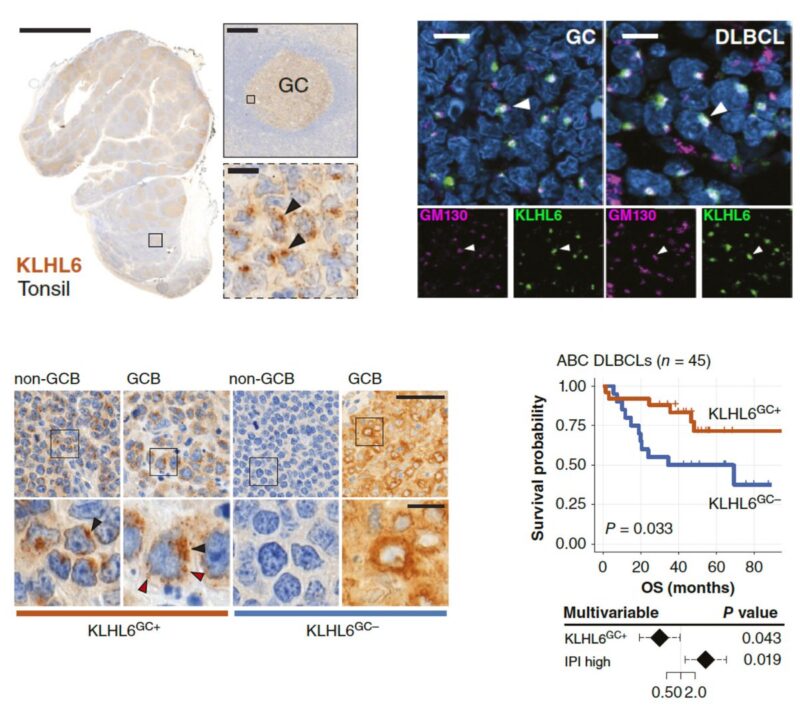
Reported KLHL6 mutations hit the BTB and Kelch domains In BTB-Kelch proteins:
Kelch domain binds the substrates.
BTB domain is mediates dimerization and E3 ligase formation.
Could the DLBCL mutations have same consequences?
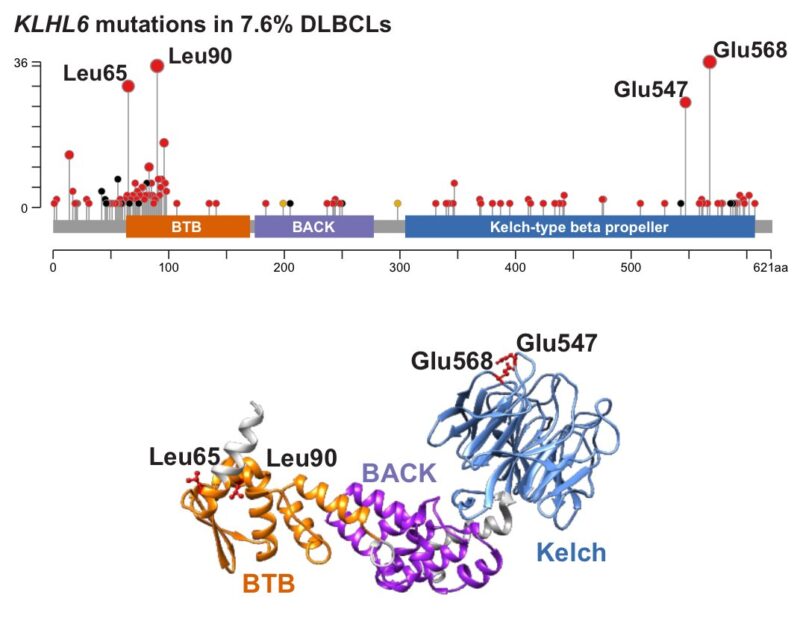
In affected tumors, BTB mutants were mostly mislocalized whereas the Kelch mutants were expressed in Golgi-like patterns.
These patterns were reproduced in lymphoma cell lines transduced mutants.
But which pathways are being affected?
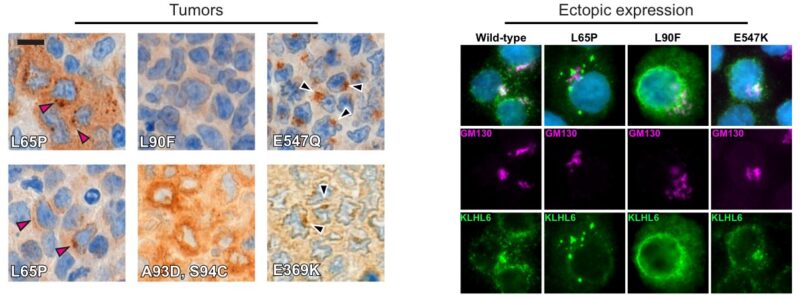
We screened for KLHL6 protein interactome with Varjosalo Lab group to find Homo- and heterodimerization (KLHL7, KLHL26). Interactions with Cullin3 and ubiquitination gear Many interesting proteins… and BCR components. Validated in B-NHL cells with other isotypes.
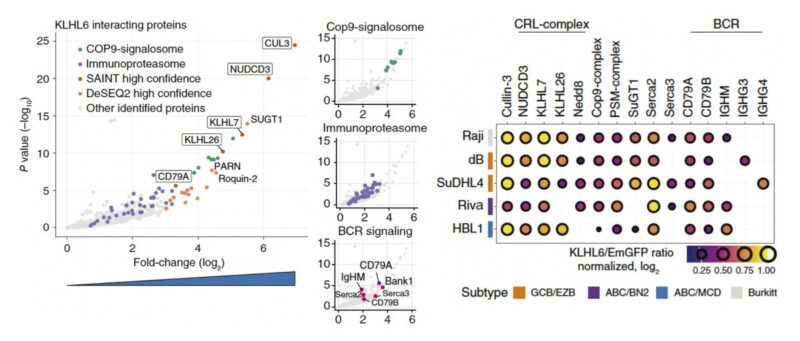
KLHL7 interaction was induced upon BCR engagement but its silencing did not increase BCR levels.
As for most BTB-Kelch proteins (much work by Rapé Lab) KLHL6-homodimer was responsible for the BCR targeting.
Do the homodimerization-capable mutants affect BCR differently then?
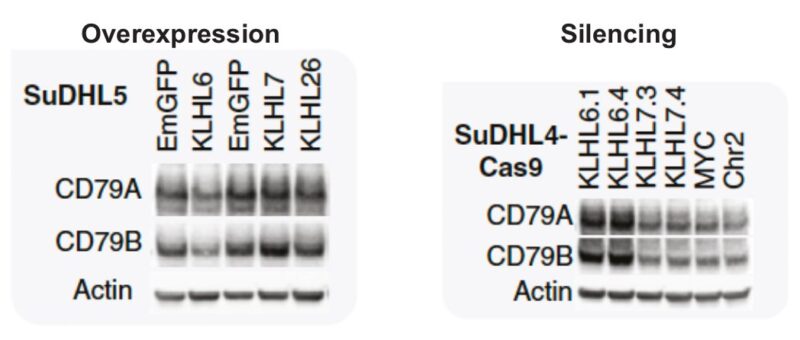
Yes, they do!
BTB mutants failed to downregulate CD79A/B (even increased the levels).
Kelch mutants retained CD79A/B targeting (impact in U2932 cells, too, where WT did nothing).
Do these mutants change how B-cells respond with their BCR?
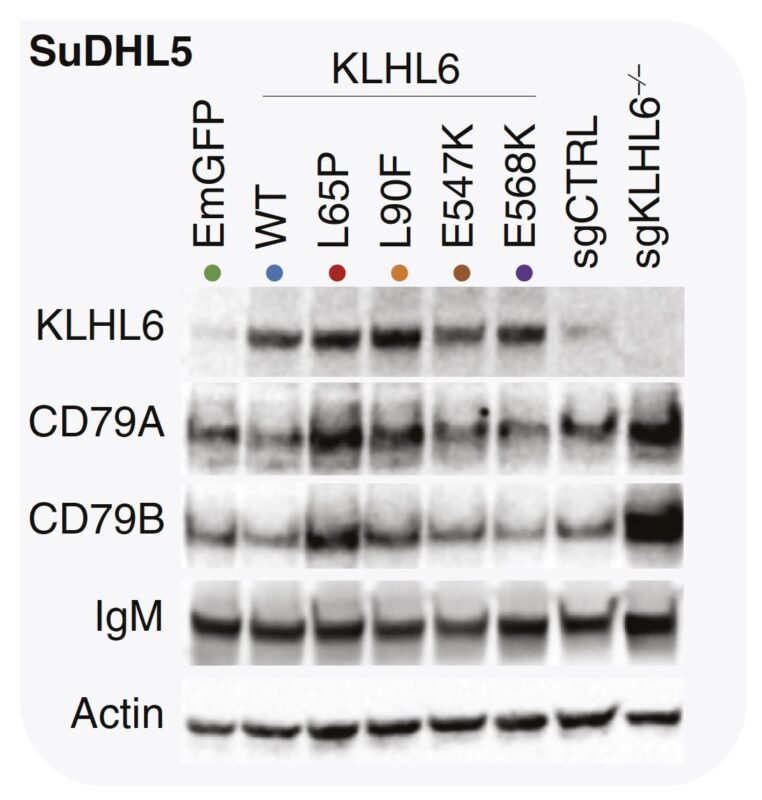
Where KLHL6 is high, CD79B is low.
BTB mutants had a trend towards higher CD79B levels with membrane accentuation in some.
Wonder if this BCR-high phenotype could be targeted somehow?
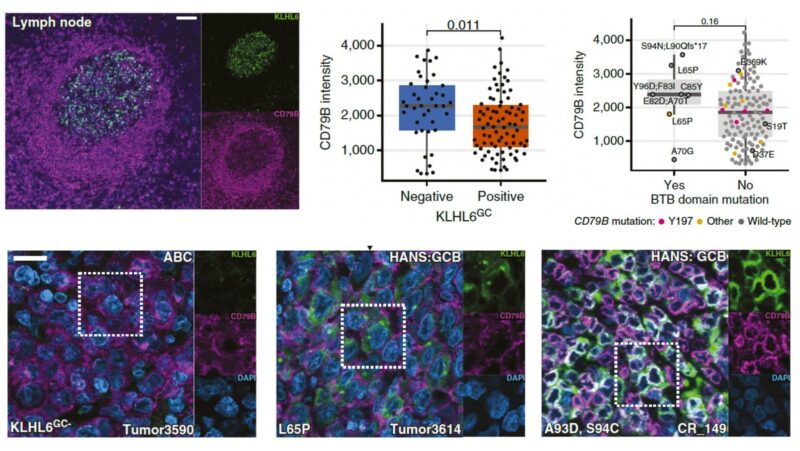
Excited to publish this by the NCI/Cambridge team.
Our approach building from KLHL6 up and their pola-V CRISPR-screens moving down from CD79B come to the same conclusion for KLHL6 role.
Congratulations Sean Corcoran, Daniel Hodson.
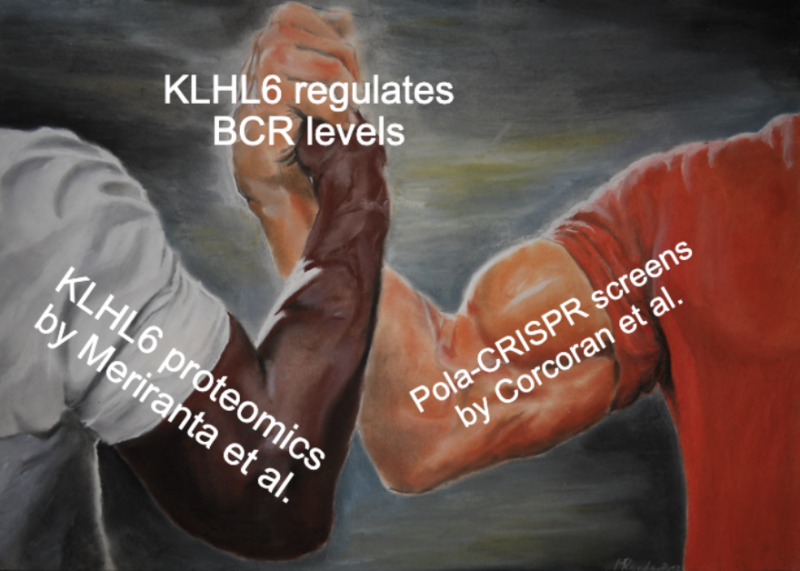
Editorial by Müschen Lab, Coraline Mlynarczyk and colleagues in Cancer Discovery puts together the results from these studies with emphasis on druggability.
Highlights on how they align with Pola-V benefit seen mostly in ABC/MCD DLBCL and how KLHL6 could be targeted to sensitize others.

Summary:
1. KLHL6 regulates BCR levels by targeting CD79A/B in the ER-Golgi axis.
2. BTB compromised mutants mislocalize and lose this function.
3. KLHL6 loss or BTB disruption increase BCR levels and fuel signaling which.
4. Unlocks sensitivity to Pola-V.
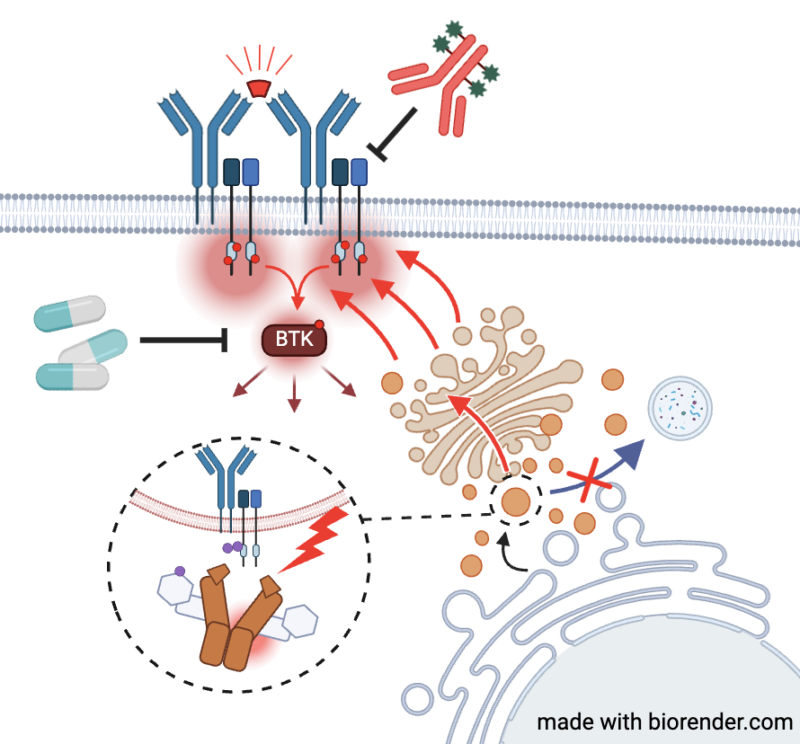
Kelch mutations retaining BCR targeting do not fit this model.
Maybe low BCR is beneficial or other KLHL6 dysfunctions more relevant in some molecular contexts.
More research needed Check out our studies on other substrates beyond the BCR (Bank1 and Luzp1) in the ms.
This project existed out of naive curiosity and never had much of a plan with one experiment stimulating the next.
Thankful for the chance to pursue this with the time, independence and resources with Sirpa Leppa.”
Source: Leo Meriranta/X
Leo Meriranta is a MD, PhD student at University of Helsinki. His research interests include translational B-cell lymphoma research.
